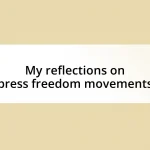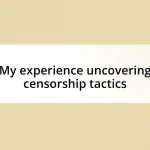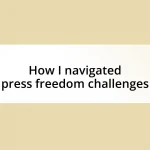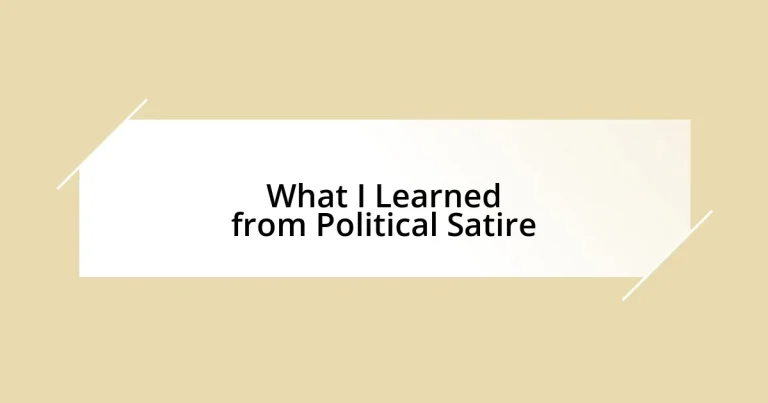Key takeaways:
- Political satire fosters critical reflection on societal and political issues, blending humor with serious commentary.
- Effective techniques in satire—such as hyperbole, parody, and irony—assist audiences in grasping complex messages and engaging in meaningful discussions.
- By making serious topics more relatable, political humor encourages questioning authority and unites individuals through shared experiences and frustrations.
- Engaging critically with satire requires discernment to differentiate between humor and underlying biases, promoting deeper understanding and dialogue.
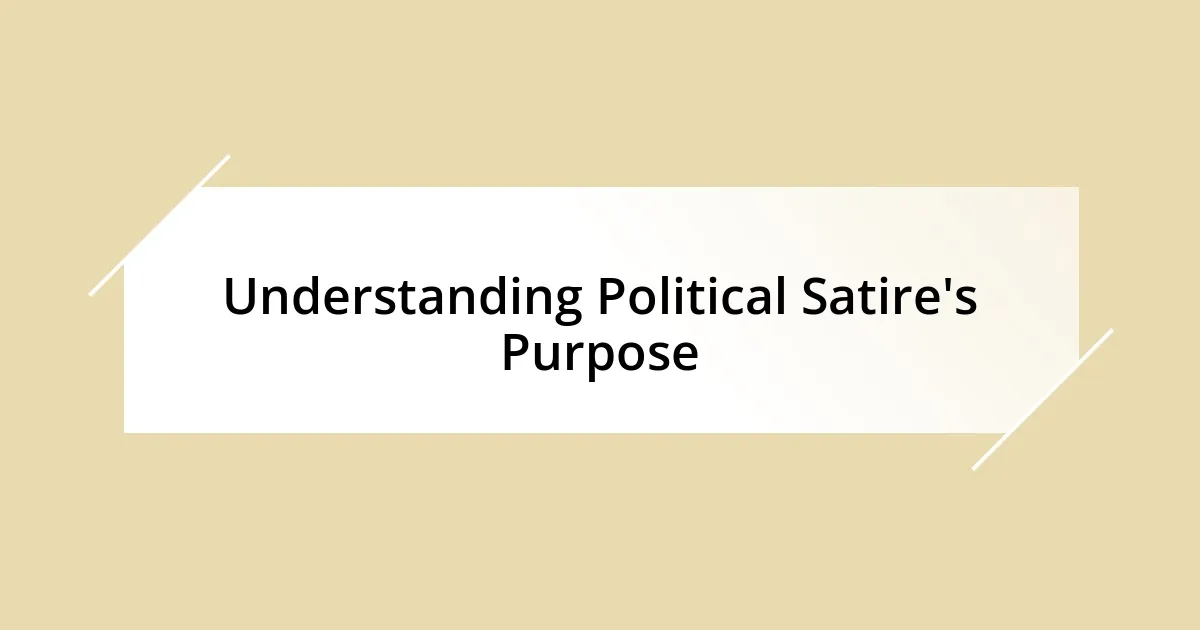
Understanding Political Satire’s Purpose
Political satire serves as a powerful tool for critique and reflection. Through humor and exaggeration, it helps audiences digest complex political issues. I remember laughing out loud at a satirical skit while simultaneously realizing how true the underlying message was; it was a perfect blend of entertainment and education.
At its core, political satire creates a space for conversation and questioning—much needed in today’s polarized climate. I often ponder, how else would we confront uncomfortable truths about our leaders and institutions? The comedic lens provides a unique opportunity to challenge authority without the fear of direct confrontation, which can be both liberating and thought-provoking.
Moreover, political satire often highlights the absurdities in our political systems. For instance, when I first watched a segment poking fun at bureaucratic red tape, I felt a mixture of amusement and frustration. It was a reminder that humor can illuminate the quirks of governance that might otherwise go unnoticed, pushing us to think critically about the structures that shape our lives.
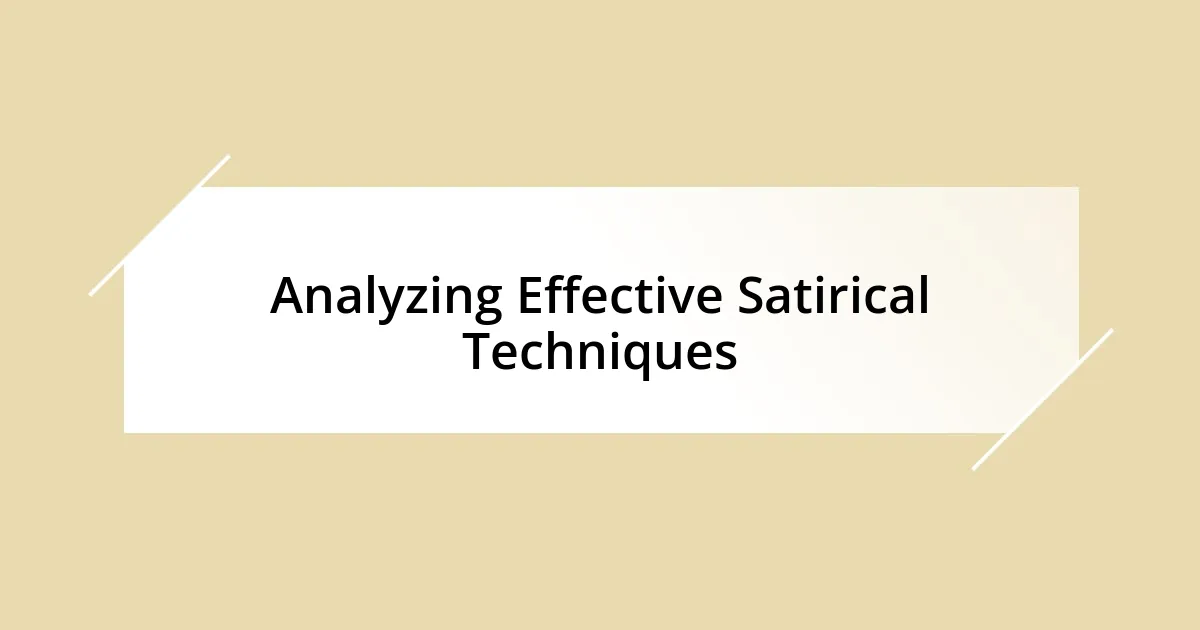
Analyzing Effective Satirical Techniques
Effective political satire relies on various techniques that enhance its impact and resonance with the audience. For instance, irony and exaggeration serve as potent mechanisms to spotlight contradictions inherent in political discourse. I vividly recall laughing at a satirical news piece that showcased a politician promising the moon while failing at basic governance. It struck me how humor can hold a mirror to those glaring inconsistencies, prompting us to engage more critically with what we’re told.
Here are some effective techniques often found in political satire:
- Hyperbole: Amplifying certain traits or flaws to an absurd level makes the underlying truth more apparent.
- Parody: Imitating a political figure or event helps convey messages in an entertaining, relatable manner.
- Juxtaposition: Placing contrasting ideas side by side highlights the absurdity or hypocrisy in political statements or actions.
- Innuendo: Subtle insinuations can be incredibly effective for pointing out uncomfortable truths without overt confrontation.
- Cultural References: Tying political issues to familiar pop culture elements makes the satire accessible and more engaging.
Each of these techniques not only entertains but encourages us to dig deeper into the ramifications of political actions and statements.
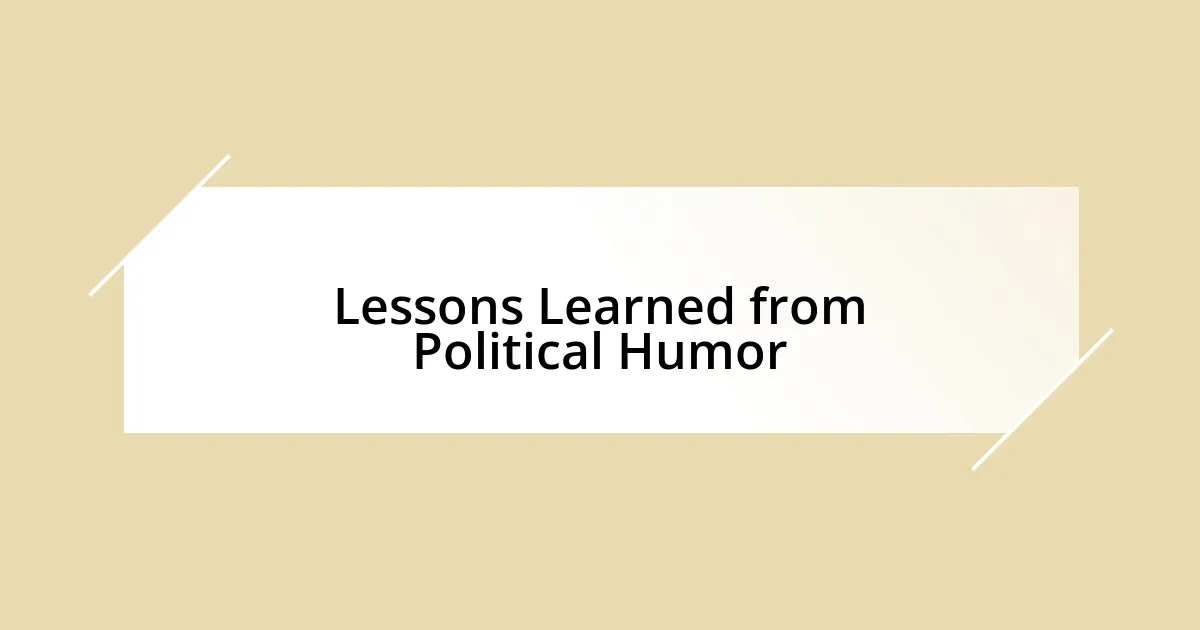
Lessons Learned from Political Humor
Political humor teaches us to question the status quo. I recall a day spent binge-watching a political comedy show with friends, and we all found ourselves laughing at jokes that hit too close to home. It was a moment of realization; humor allowed us to unpack our frustrations about local policies without the heaviness that often accompanies serious discussion. This light-hearted approach enabled us to express our opinions candidly and helped foster a sense of camaraderie.
One powerful lesson I’ve gleaned is that political satire strips away the formality that can often cloud serious topics. I once watched a skit where a satirist dressed up as a public official, arguing ridiculous points just to make a case for absurd budget cuts. As silly as it was, it made me reflect deeply on how such decisions affect everyday lives. It illustrated how humor can serve as a mechanism to deliver hard truths, making them more digestible.
Moreover, I’ve learned that political humor can unify people through shared experiences and laughter. I remember attending a political satire event, where everyone erupted in laughter over topics that we all grappled with. It was liberating, reminding me that while we may stand on different sides of the aisle, we all share similar frustrations and hopes. This shared laughter serves as a reminder that while politics can divide us, humor can bring us together.
| Lesson From Political Humor | Personal Experience |
|---|---|
| Encourages questioning of authority | Laughing at political jokes with friends about our own frustrations created an open dialogue. |
| Makes serious topics more relatable | Watching a skit about crazy budget cuts led me to understand real impacts on our community. |
| Unifies through shared experiences | Attending satire events highlighted common concerns and gave us a sense of community. |
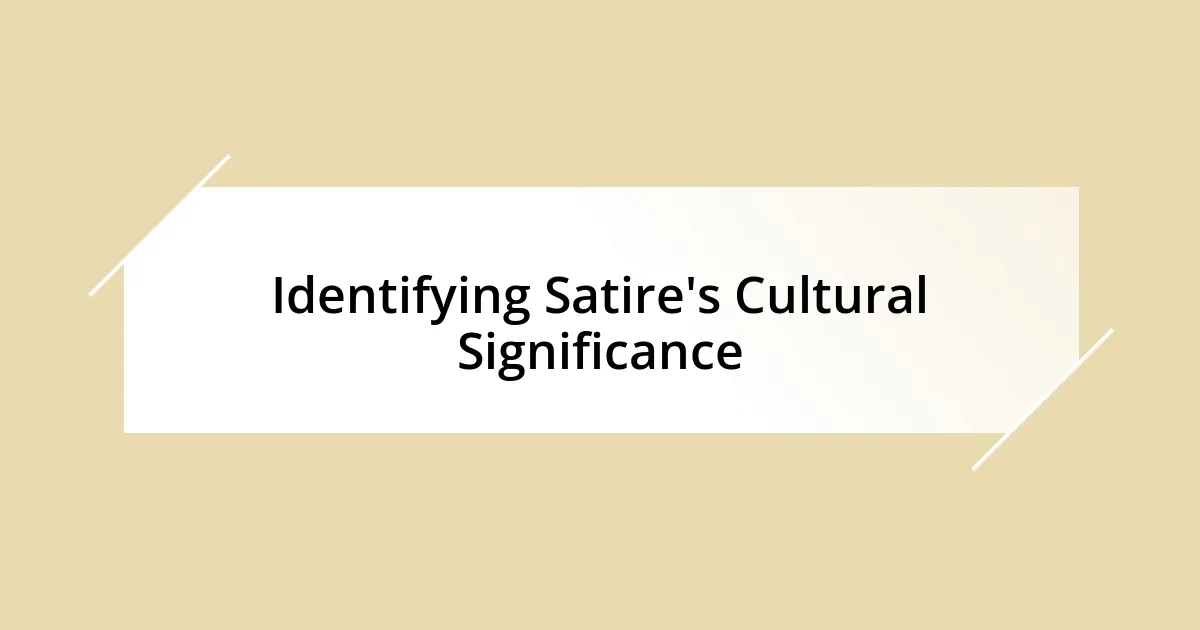
Identifying Satire’s Cultural Significance
Identifying satire’s cultural significance goes beyond mere laughter; it’s about harnessing the power of humor to critique societal norms. I remember attending a satirical play that dissected current events with such sharp wit that it left the audience both chuckling and pondering. This blend of humor and critical reflection made me realize how satire acts as a catalyst for conversations that might otherwise be uncomfortable or overlooked.
In my experience, political satire can challenge entrenched beliefs and prompt societal reflection. I once watched a viral sketch that lampooned an ongoing political scandal, and while it was hilarious, it also ignited debates among my friends about accountability and ethics in leadership. What struck me most was how laughter forged a connection between us, sparking meaningful dialogue in a space where dissent is often stifled.
It’s fascinating how satire can illuminate societal issues by making them relatable and accessible. I fondly recall a late-night comedy segment where the host cleverly tackled immigration policies through light-hearted anecdotes. While I laughed, I also felt a twinge of guilt, realizing that many people’s lives were influenced by these decisions. It made me question: how often do we allow humor to shine a light on serious matters, thus creating a bridge between entertainment and the urgent issues we face?
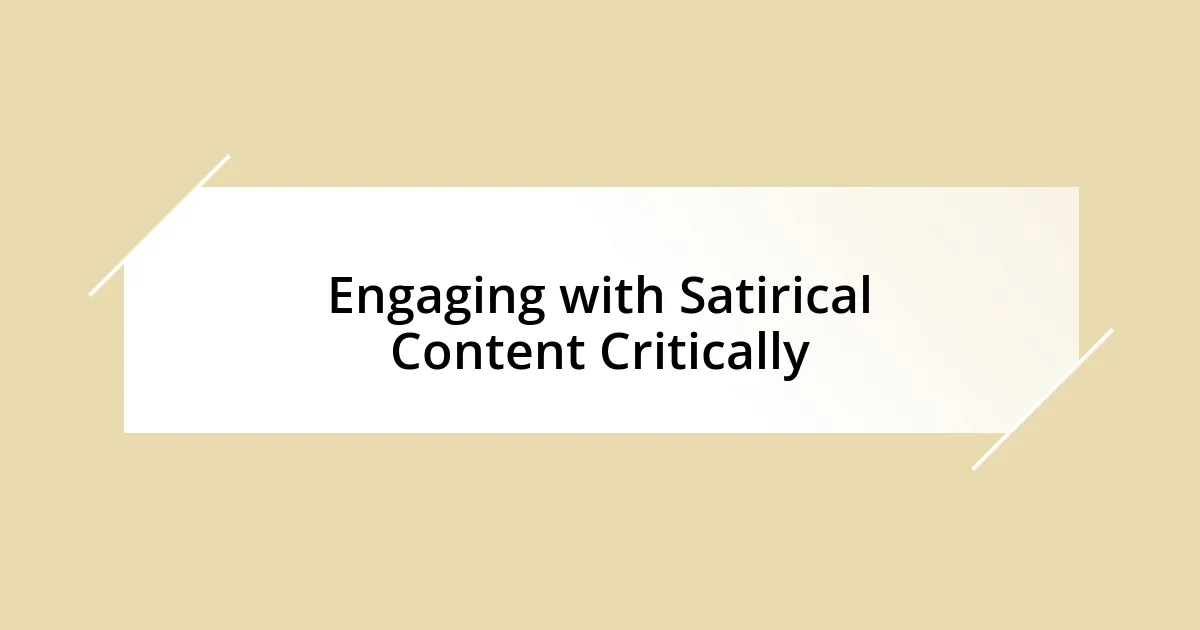
Engaging with Satirical Content Critically
Engaging with satirical content requires a discerning eye. I remember watching a satirical news segment that lambasted a recent policy change. While it evoked fits of laughter, I found myself questioning the portrayal. Was it exaggerating the truth, or was it cutting through the noise to reveal a deeper flaw? Those moments of reflection taught me that appreciating satire often means deciphering what’s real and what’s hyperbole.
I’ve often been struck by how easily humor can lead us astray if we’re not vigilant. During a recent comedy show, I laughed heartily at jokes about a political figure, only to later realize some punchlines perpetuated misleading stereotypes. This realization sparked a critical thought in me: Are we laughing at the humor itself or perpetuating narratives that could harm societal discourse? Acknowledging that duality is crucial; it helps us sift through the entertainment to uncover possible biases lurking beneath the surface.
Sometimes, I catch myself pondering: how can we deepen our engagement with satire? I think it’s essential to take a moment after laughter to digest the underlying messages. I recall a particularly witty sketch that highlighted the absurdity of misinformation in politics. Post-laughter, I discussed it with friends, and we dissected our own beliefs about the information we consume. This practice of critical engagement not only enriched our understanding but also fostered a culture of questioning rather than simply accepting the jokes at face value.






